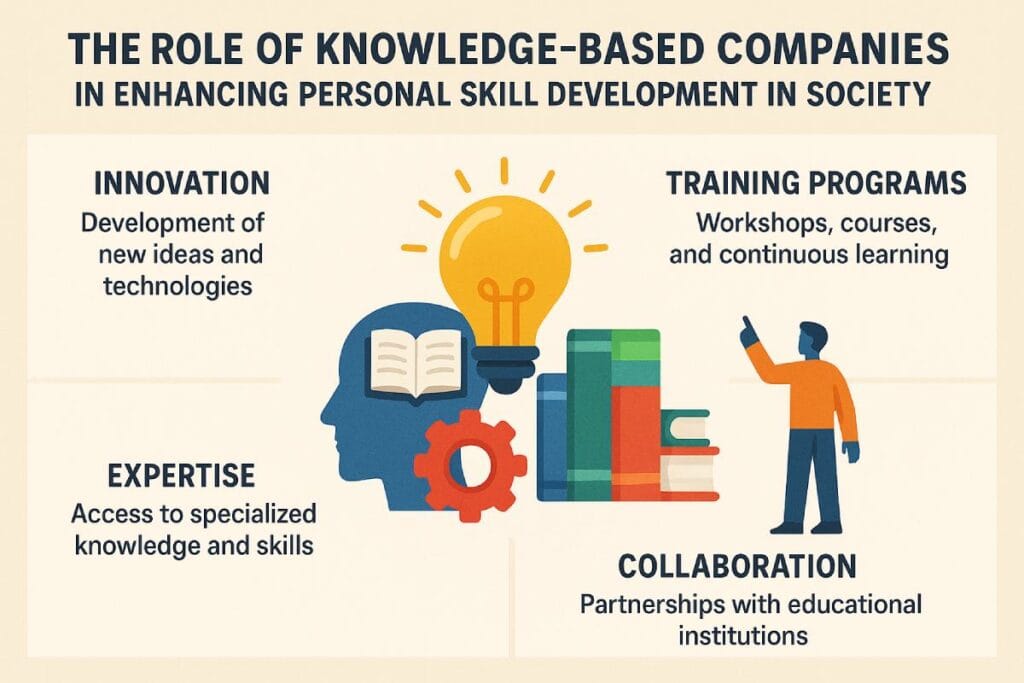The Role of Knowledge-Based Companies in Enhancing Personal Skill Development in Society

In the rapidly evolving global landscape, personal skill development has emerged as a cornerstone of individual success and national competitiveness. In this context, knowledge-based companies—organizations grounded in science, innovation, and technology—are playing a pivotal role in nurturing skills within society. These companies are not only drivers of economic progress but also powerful catalysts for building human capital and enabling lifelong learning.
Empowering Individuals Through Applied Learning
Unlike traditional corporations, knowledge-based companies often operate at the cutting edge of research and development. Their reliance on highly skilled labor necessitates continuous training and professional development. By investing in employee upskilling programs, workshops, and hands-on experience with new technologies, these firms indirectly promote a culture of practical, experience-based learning. This approach goes beyond academic theory, equipping individuals with real-world skills such as critical thinking, programming, data analysis, and digital literacy.
Creating Ecosystems of Innovation and Learning
Knowledge-based companies frequently collaborate with universities, vocational institutions, and research centers, forming innovation clusters that foster shared learning. These ecosystems create a ripple effect: startups, freelancers, and students gain access to mentoring, internships, and innovation labs. As a result, knowledge transfer becomes multidirectional—academia feeds industry, and industry, in turn, enriches the educational process with practical application. This cycle significantly improves the personal competencies of young professionals entering the workforce.
Promoting Entrepreneurial and Soft Skills
Beyond technical skills, knowledge-based companies contribute to the development of soft skills such as communication, teamwork, adaptability, and leadership. Many startups and innovation-driven firms rely on cross-functional teams and dynamic project-based environments, which naturally cultivate interpersonal and entrepreneurial abilities. Through mentorship programs and startup accelerators, these companies help individuals grow into confident innovators, capable of launching their own ventures or excelling in multidisciplinary roles.
Addressing Societal Skill Gaps
In regions where traditional education systems struggle to keep up with technological change, knowledge-based companies often step in to bridge skill gaps. Through corporate social responsibility (CSR) initiatives, they offer coding bootcamps, STEM outreach programs, digital literacy campaigns, and workshops in underserved communities. These efforts democratize access to modern skills, ensuring a more inclusive and equitable development of human capital across society.
Conclusion
Knowledge-based companies are more than economic entities—they are engines of human potential. By integrating innovation with inclusive training models, they not only fuel industry growth but also uplift the individual capacities of the societies in which they operate. As we navigate the challenges of the digital age, the collaboration between these companies and educational institutions will be critical to developing a workforce that is skilled, adaptable, and future-ready.
Source : Medium.com




